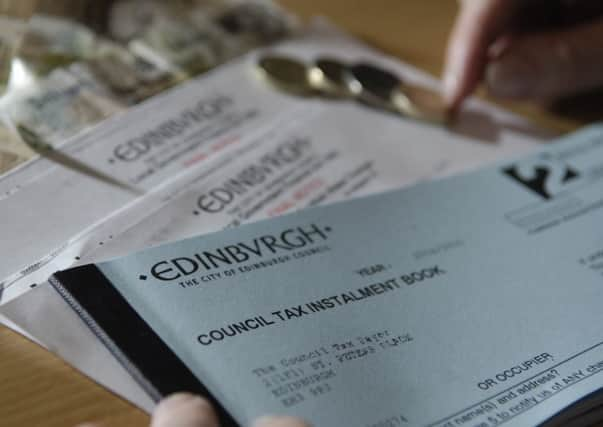Jim Orr: Charges could be positive amid cuts


Much is at stake, with £28 million of savings proposed including around £300,000 from public toilet provision, £500k from Edinburgh Leisure and £160k from the City Car Club. The £28m also includes some proposals to increase income, for example, from parking and allotment fees of £750k and £150k respectively.
Separately, we are developing radical plans for service redesign, with the focus on frontline services and local delivery at the expense of middle management. Again this is commendable.
Advertisement
Hide AdAdvertisement
Hide AdHowever, we are not consulting on a number of potential new revenue streams which are considered to be more politically unpalatable than cuts to service budgets. At least three of these are worth knowing more about.
Firstly, Edinburgh is the only council in Scotland to pay for all tenement stair lighting at a cost of around £2m annually. Suddenly charging for this service would be difficult and unpopular but the current position seems to be financially unsustainable, and so it’s reasonable for the public at least to be consulted on whether tenement residents should have to pay for the cost of the service.
Another service which is currently free is garden waste collection. It is estimated that a £40 annual fee could earn the city upwards of £1.5m. The service would also be a reduced and more efficient one as, were a charge to be imposed, it is estimated that around 30 per cent of service users would opt for cheaper alternatives such as home composting (the most environmentally friendly option) or go to a community recycling centre.
Finally, the Transient Visitor Levy. It is estimated that even a modest two per cent charge on accommodation could earn the city upwards of £4m annually, or that a £2 flat fee could raise £10m. The hospitality industry and Scottish Government are opposed to it but Highland Council, where the SNP share power, have been confident enough to consult their residents on it.
If the Labour/SNP-led city council had tried to obtain a similar mandate of public approval then our councillors could have joined forces with their Highland counterparts to press the government for a policy change.
That opportunity has been lost for another year when privately the vast majority of Edinburgh councillors support it, and in cities worldwide it has been widely and quickly accepted.
The council tax freeze is now in its seventh year and it is perfectly possible that the majority of residents would be prepared to support some or all of the above measures in order to maintain a quality of life widely seen as the best in Britain.
We should trust the public enough to let them have full information about what could be done to sustain important services.
Advertisement
Hide AdAdvertisement
Hide AdYes, implementing such charges would be challenging but we all know that tough decisions are better taken sooner rather than later. The council should have had the courage to test the water of public opinion before ruling out these income generation policies for another year.
• Independent councillor Jim Orr was a local authority auditor and accountant.